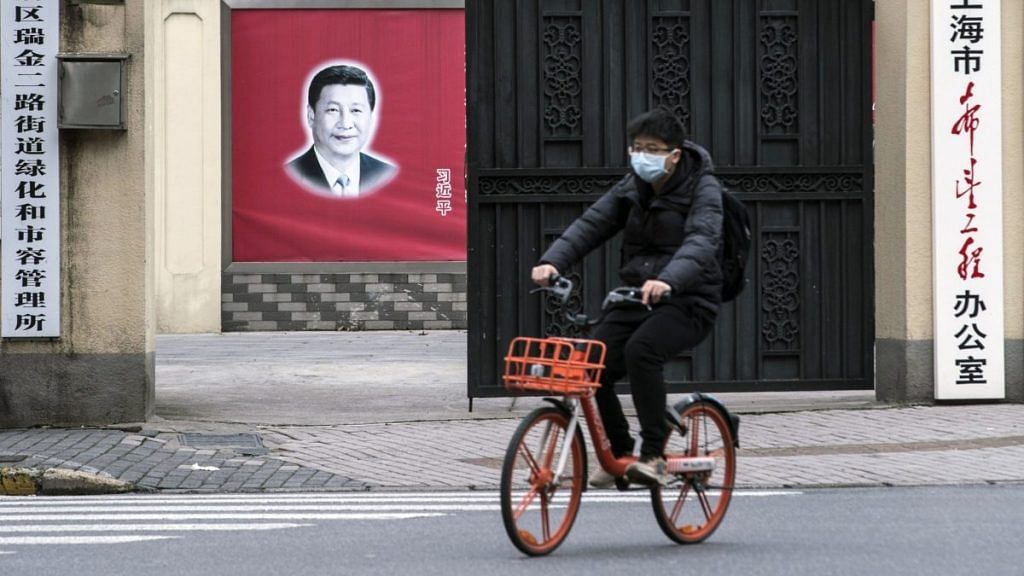The manner in which the Chinese government managed the COVID-19 outbreak is being favourably compared to the general mess that Europe and the United States have made of it so far. Now that China seems to have contained the initial outbreak while Western countries are struggling with a massive surge in cases, Beijing’s propagandists and apologists have started asserting that the Chinese one-party, one-leader “system” is superior to a messy liberal democracy that is incapable of acting with the coherence, speed and efficiency required to contain the pandemic.
But here’s a strange thing: prominent Chinese individuals who criticised President Xi Jinping and the Chinese “system” for botching up the initial response to the Wuhan outbreak have been arrested or mysteriously disappeared. In contrast, Americans, British and Europeans are criticising their leaders, governments and public health policies without the smallest risk of arrest or detention. If the Chinese system is really as good as it is cranked out to be, why the need to silence the critics?
Also read: India needs to ramp up COVID-19 testing, learn from South Korea & avoid US’ mistakes
Holes in China story
The Chinese government does deserve credit for containing the spread of the COVID-19 outbreak to the extent that the numbers reported from China are credible. That, however, is not a validation–neither of its authoritarian system nor of the extraordinary draconian measures employed to manage the pandemic. Indeed, there is a case to be made that it was the secretive, top down, ‘meritocratic’ system that made the outbreak so big and so bad that draconian measures became necessary. If the Communist party leaders were less concerned about their careers, promotions and appearances and more about managing public health properly, they might not have waited a whole month before raising alarm. That’s not all. While the cordon sanitaire was effective, we do not know whether the counterfactual, less draconian containment measures, might have worked as effectively.
The fact that other East Asian countries have been quite successful in controlling the pandemic challenges the notion that a China-style lockdown is the only way to do it. Taiwan — which has been kept out of the WHO by Beijing — used a combination of proactive surveillance, early screening, data-based control measures and mobile phones to limit the contagion to imported cases. Despite Taipei being one of the most vulnerable cities — due to its extensive ties with Wuhan — Taiwan has come out relatively unscathed.
South Korea’s strategy of mass, rapid testing and real-time information sharing turned out to be very effective. High social capital in Japan and the rule-of-law culture in Singapore enabled voluntary compliance and social distancing strategies. The emphasis might have been different, but all of these countries had well thought-through strategies that were competently executed by the government machinery with cooperation from society.
So, rather than celebrating China-style hardline methods, the question to ask is: why did Beijing not use the non-authoritarian public health measures that its East Asian neighbours employed so successfully?
Also read: ‘Listen to experts, ignore morons’ — Schwarzenegger for social distancing to beat COVID-19
Chinese pressure on WHO
From the outset, China has been overly sensitive to its ‘image’ than perhaps to the diktats of international public health organisations. In earlier columns I have pointed out how the WHO was reluctant to call for stricter travel restrictions earlier in the outbreak despite knowing that SARS-CoV-2 (severe acute respiratory syndrome coronavirus 2) was particularly virulent. While the WHO had to walk a tightrope between alarmism and over-cautiousness, it is almost certain that pressure from China caused it to delay calling for more stringent measures to control the spread. It was not before early March that the WHO finally agreed that the COVID-19 had become a pandemic.
Even the delightfully bureaucratic name COVID-19 was chosen to put an end to the term “Wuhan coronavirus” that the Chinese found objectionable. The WHO is perfectly comfortable with Ebola, Zika, Lassa and West Nile viruses, which are named after African geographical features. There is little outrage over Japanese encephalitis, German measles or the Marburg virus. But calling a virus that originated specifically from seafood and wildlife market in Wuhan is a matter of concern.
Also read: Anti-globalisation lobby sees world as ‘us vs them’. Coronavirus doesn’t make distinction
China’s true colours
When China was reeling under the coronavirus crisis, a lot of people around the world — me included — sympathised with the country and advocated a policy of cooperation and goodwill. However, Beijing’s actions since then suggest that such sentiments were unwarranted. From the manner in which it treated New Delhi’s offer of assistance, to the disgraceful conspiracy theories that its diplomats are spreading on social media, to the gloating over the situation in Western countries, China’s regime is showing its true colours.
In the coming months and years, there is no doubt that Beijing will use its power and wealth to shape a narrative where it stood victorious against both the SARS-CoV-19 and other richer countries. Beijing, it would seem, wants to have nothing to do with a pandemic that originated in its territory and became a global problem because of its mistakes. It is understandable that leaders and countries would rather that everyone forget their mistakes, but the rest of the world should know better than to applaud China’s global leadership.
The author is the director of the Takshashila Institution, an independent centre for research and education in public policy. Views are personal
